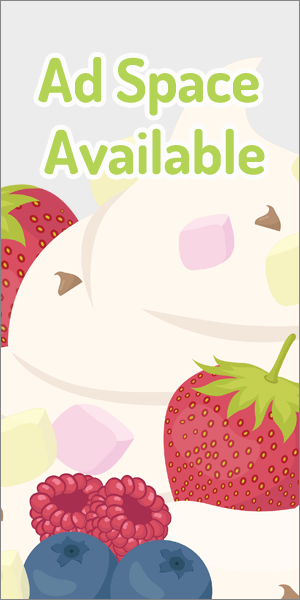Do you understand the difference between recyclable, biodegradable and compostable frozen yogurt cups, lids and spoons? We asked IFYA’s Packaging and Branding Expert, Tim Porter, to explain each of these terms and to provide tips for becoming an eco-friendly frozen yogurt shop. Tim is the Owner of FrozenDessertSupplies.com, which serves thousands of customers across the US and sells frozen yogurt, ice cream and gelato cups, lids, spoons, souffle sample cups and more.
By Tim Porter
Frozen yogurt shop owners are rightly concerned about the mountains of disposable cups, lids and spoons the industry creates annually. Advances in recycling and manufacturing have created new ways to eliminate much of this paper and plastic waste if the right actions are taken. Recyclable, compostable and biodegradable supplies are all options for today’s environmentally conscious owner. However, these terms are often used incorrectly and interchangeably, leading to confusion. Adding to the confusion are packaging supply companies that incorrectly label their products and are not fully aware of the “net” environmental impact of different materials.
Customers periodically ask us at FrozenDessertSupplies.com about eco-friendly products. In response to questions about these products, sustainability strategist Leyla Acaroglu says: “it’s very complex, and we’ll have to spend four hours talking about what an eco-material means, because everything at some point comes from nature, and it’s how you use the material that dictates the environmental impact. How do we know if we’re actually reducing the “net” environmental impact that our actions are actually having on the natural environment?”
“Net” environmental impact and sustainability can be complex to understand especially for a frozen yogurt shop owner who has so many other things to focus on. I would like to help begin to clear up some of the confusion.
Recyclable
The term recyclable isn’t a label; it’s a verb. Any product can be recycled, including frozen yogurt cups, lids and spoons. The determining factor is whether consumers and store owners actually do it. Recyclable products require separation from other restaurant waste. These products are then sent to a recycling facility, where they are broken down and made into new products. Recyclable products are the most commonly used environmentally friendly option, but they require more time investment because of the sorting and separation involved.
Biodegradable
Biodegradable is a term that has exploded in use mainly due to the lack of standards or oversight. The term is technically applied to products that break down into smaller pieces over time, thus allowing microorganisms to consume them. The lack of controls over this label has led to its overuse by manufacturers, who loosely back up their claims. Biodegradability is a material property, not necessarily a definition of environmental benefit. All bio and petroleum based plastics are technically “biodegradable,” meaning they can be degraded under suitable conditions. However many degrade at such slow rates as to be considered non-biodegradable by the Biodegradable Products Institute.
Compostable
If a frozen yogurt shop owner desires to help the environment and become eco-friendly, then he/she should purchase compostable frozen yogurt cups, lids and spoons. Compostable products decompose faster than their standard counterparts, and the term is regulated by ASTM International standards. These products are derived from renewable and natural raw materials such as starch from corn or potato. Products that are compostable often offer nutrients or minerals that add benefits back into the soil or supply food for microorganisms. Although decomposition time varies, these products typically decompose within 180 days or less. Because “Compostable Plastics” are regulated by the ASTM, store owners who want to help reduce their “net” impact to the environment will want to go all in and use compostable products if they feel the added expense is justified.
Identifying the Difference
Identifying the difference between these products is tricky, as shop owners must rely on the labels or claims made by the manufacturers. Frozen yogurt shop owners who want to help the environment should begin by offering separated trash and recycle bins. In addition, shop owners can begin to educate themselves to determine which eco-friendly packaging products (cups, lids, spoons, etc.) make sense for their store. Together, with additional knowledge on this topic and actions taken, we can help the environment immensely and leave a better world for the next generation.
About Tim Porter
Tim is an entrepreneur who opened a frozen dessert store in Arizona in 2007. He quickly realized that there were very few reputable companies offering cups and spoons. The companies he found were inconsistent, lacked customer service and did not offer the ability to order online. He set out to change the industry and started www.FrozenDessertSupplies.com to fill the huge gap he found when looking for frozen dessert cups, spoons lids etc. Having started and owned his own frozen dessert store has given him the unique opportunity to know exactly what customers are dealing with and what decisions they need to make to be successful.
About FrozenDessertSupplies.com
If you want to try custom cups or update a current design, contact us at www.FrozenDessertSupplies.com or call 1-800-518-9229. We work with some of the largest and most successful companies, so we know what works. We will help design a logo, social icons, QR codes as well as full color backgrounds and logos on both sides at little to no extra charge.
The views and opinions expressed herein are those of the author and do not necessarily reflect the views of the International Frozen Yogurt Association.




